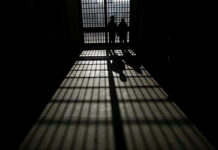KL Desk
SRINAGAR
An extremely acute electricity supply situation is hitting businesses, common people and those connected with the tourism industry in the Kashmir Valley.
Authorities, however, assert that they are doing their very best to improve the scenario.
“I run a provision store in a metered area of the city where the government is committed to ensuring uninterrupted electricity supply. Instead of getting electricity for at least 12 hours, we are receiving erratic power supply, often for not more than four hours. How can I run my business like this? We are on the verge of closure,” said, a Srinagar shopkeeper.
Member of a federation of traders in the valley, says, “This is so frustrating. The government had better do something about the electricity supply situation, or we will be left with little to do but hit the streets in protest.”
A houseboat owner said the peak season for the houseboats has started, but if power supply to the boats is curtailed, the situation will be difficult. “We are forced to run electric power generators and sometimes use candles in the night. Tourists complain, but what can we do?” He asks.
The power situation affects not only businessmen and tourists, but also common people.
“We have paid all electricity dues in advance, up to the end of March (2013). Despite that, we do not receive sufficient power supply. The authorities said during the winter months that curtailments and shutdowns had become necessary because of the low water discharge in the valley’s rivers. All electricity projects here are hydro based,” said a resident of Srinagar.
He however, added that with the improvement of the weather, the discharge in the rivers has increased. “But authorities are still continuing with winter schedules of power supply,” he said.
A senior official of the electricity department said that the total generation in the state-owned power projects in Kashmir stood at just 150 megawatts.
“We need around 1,200 megawatts to do away with the present curtailment schedule. On an average, we import around 1,100 megawatts daily, but sometimes there is a shortfall in our imports due to various problems. That results in an adverse scenario,” he added.
“We are sure to stabilize the situation within the next few days and the power supply would improve generally throughout the valley”, the official said.
State Chief Minister Omar Abdullah has been pitching for the transferring to the state the three major power projects, namely Salal, Dulhasti and Uri projects, owned by the National Hydel Power Projects Corporation (NHPC).
The NHPC authorities have so far refused to transfer these projects, which run on Jammu and Kashmir rivers, to the state’s ownership.
The state is, however, entitled to receive 12 percent of the generated power from NHPC-owned projects free of cost, as royalty.
Each year, the state spends over Rs.4,000 crore on buying electricity from other states. The chief minister, who also holds the power portfolio, has been asserting that continuation of such a situation could be suicidal for a poor state like Jammu and Kashmir.















